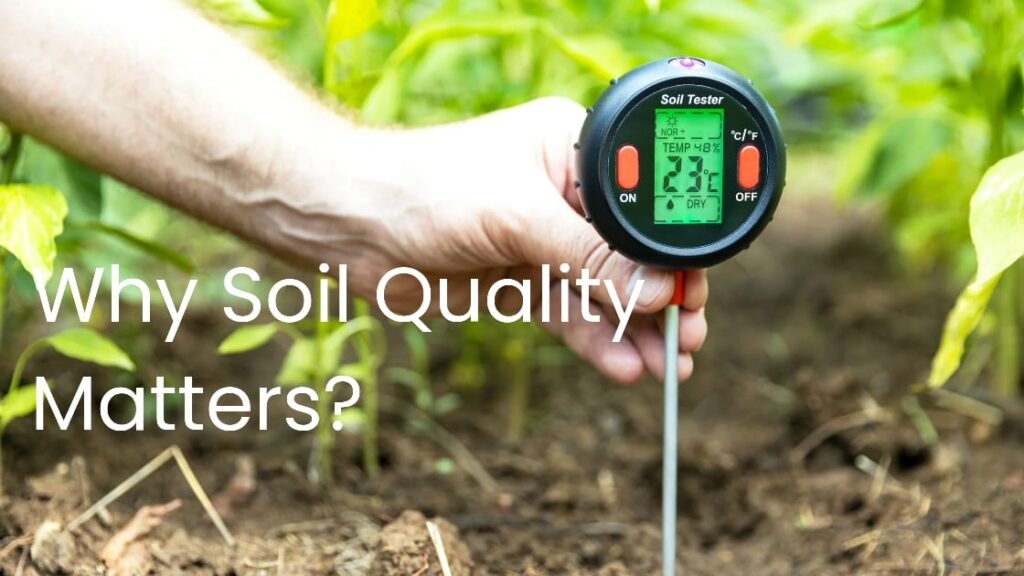Why Soil Quality Matters: Insights from Kenyan Landscaping Experts

Soil quality is often overlooked in landscaping, yet it’s the foundation of any healthy garden or green space. In Kenya, where soil conditions vary widely across regions, understanding and improving soil quality is essential for successful landscaping. Here, we’ll explore why soil quality matters and how it impacts plant growth, sustainability, and the beauty of landscaped areas.
The Role of Soil in Landscaping
Soil is much more than just dirt. It’s a living ecosystem that provides nutrients, water, and structure for plants to thrive. Kenyan landscaping experts emphasize that healthy soil is the key to establishing resilient and vibrant landscapes, whether you’re creating a backyard garden, a public park, or an office green space.
1. Supports Plant Growth and Health
Nutrient-Rich Soil for Robust Growth
Good soil quality means it contains the essential nutrients plants need for growth. In Kenya, soil varies from nutrient-rich volcanic soils in regions like the Rift Valley to more sandy or clay-heavy soils in coastal and arid areas. Understanding your soil type can help in selecting the right plants and ensuring they receive the nutrients needed for strong, healthy growth.
Balanced pH Levels
Soil pH affects how plants absorb nutrients. Kenyan landscaping experts recommend testing the soil’s pH, as different plants have unique pH preferences. Adjusting soil pH with organic amendments, such as compost, can make a significant difference in plant health.
2. Enhances Water Retention and Drainage
Water Management for Diverse Landscapes
Water is a valuable resource in Kenya, where dry seasons can stress plants and landscapes. Quality soil with good structure helps retain moisture during dry spells, reducing the need for excessive watering. Conversely, well-draining soil prevents root rot in areas prone to heavy rains, such as Kenya’s highlands.
Soil Structure Matters
Healthy soil contains a mix of sand, silt, clay, and organic matter that supports optimal water retention and drainage. Kenyan landscaping experts often recommend adding organic matter to improve soil structure, making it easier for roots to access water and air.
3. Prevents Erosion and Soil Degradation
Protecting Landscapes from Erosion
Soil erosion is a major issue in Kenya, especially in sloped or exposed areas. Poor-quality soil lacks structure and can wash away easily during heavy rains, damaging landscaping projects. By investing in high-quality soil and erosion-preventive plants, property owners can create more stable landscapes.
Conserving Soil Health
Soil degradation reduces fertility and makes it harder to maintain vibrant landscaping. Kenyan landscaping professionals encourage sustainable practices, such as mulching and crop rotation in gardens, to preserve soil health and protect long-term landscaping investments.
4. Promotes Biodiversity and Soil Life
Encouraging Beneficial Organisms
Quality soil supports an ecosystem of beneficial organisms, including earthworms, bacteria, and fungi, which play crucial roles in breaking down organic material and aerating the soil. These organisms improve nutrient availability and soil structure, creating an ideal environment for plants to flourish.
Creating a Balanced Ecosystem
In Kenya, where native plants attract local wildlife, healthy soil helps support biodiversity. This not only enhances the beauty of the landscape but also provides natural pest control, reducing the need for chemical treatments that can harm the environment.
5. Reduces the Need for Chemical Fertilizers
Sustainable Landscaping with Natural Fertility
High-quality soil naturally provides essential nutrients, reducing reliance on chemical fertilizers that can harm the environment. Kenyan landscaping experts often advise using organic compost and natural soil amendments to boost soil fertility sustainably. This not only saves costs in the long run but also promotes a healthier environment.
Lower Maintenance Requirements
Landscapes with high-quality soil require less maintenance, as plants have the nutrients and moisture they need to thrive. This is particularly important for larger properties or community spaces, where regular fertilization and watering can become costly and time-consuming.
Improving Soil Quality: Tips from Kenyan Landscaping Experts
- Soil Testing – Start by testing your soil to understand its composition, pH level, and nutrient content. This helps in selecting appropriate plants and soil amendments.
- Use Organic Amendments – Add organic matter, like compost or manure, to improve nutrient availability and soil structure.
- Apply Mulch – Mulching retains moisture, suppresses weeds, and protects soil from erosion, especially during Kenya’s dry seasons.
- Plant Native Species – Native plants are well-suited to local soil and climate conditions, requiring less maintenance and supporting local ecosystems.
Conclusion
Soil quality is the backbone of any successful landscaping project. By investing in high-quality soil, property owners in Kenya can ensure healthy plant growth, sustainable water use, and a resilient, beautiful landscape. Following the advice of Kenyan landscaping experts and taking steps to improve soil quality is a wise investment in creating landscapes that thrive for years to come. Mail us or contact us +254 725 144017 for professional advice and work on landscaping.